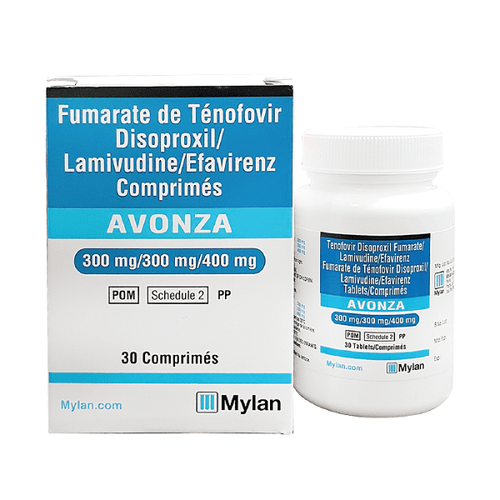This is an automatically translated article.
Edurant is used with other HIV medicines to help control HIV infection. It helps reduce the amount of HIV virus in your body so your immune system can work better. This reduces your risk of HIV complications (such as new infections, cancer) and improves your quality of life.1. What does Edurant do?
Edurant is usually prescribed to people who have not taken any HIV medicine before. The active ingredient in Edurant is Rilpivirine, a non-nucleoside reverse transcriptase inhibitor (NNRTI). It stops the virus from growing and infecting more cells. Edurant is not a cure for HIV infection.To reduce the risk of transmitting HIV to others, continue to take all HIV medicines exactly as prescribed by your doctor. Use an effective barrier method such as condoms during sex as directed by your doctor. Do not share personal items (such as needles/syringes, toothbrushes and razors) that may have come into contact with blood or other body fluids.
Edurant is contraindicated in the following cases:
HIV Prevention of HIV infection after exposure Edurant is contraindicated in the following cases:
Viral infection in the liver Suicidal thoughts Depression Liver disease Women are giving breastfeeding stage 4 chronic kidney disease (severe) stage 5 chronic kidney disease (failure)
2. How to use Edurant
Read the leaflet from your doctor carefully before you start using Edurant and each time you get a refill. If you have any questions about how to use Edurant, ask your doctor. Edurant is to be taken by mouth with a meal as directed by your doctor, usually once a day. Edurant dosage may be calculated based on other medications you are taking. Be sure to tell your doctor about all the medicines you use including prescription drugs, over-the-counter medicines, and herbal products. Medicines that reduce or block stomach acid such as proton pump inhibitors/PPIs, H2 blockers, antacids can decrease the absorption of rilpivirine, making it less effective. Do not take PPIs (such as omeprazole, lansoprazole) while using Edurant. If you take an antacid, take it at least 2 hours before or at least 4 hours after you take Edurant. If you take an H2 blocker (such as famotidine, ranitidine), take it at least 12 hours before or at least 4 hours after taking Edurant. It is very important to continue taking Edurant (and other HIV medicines) exactly as prescribed by your doctor. Do not take less Edurant than prescribed or stop taking it (or other HIV medicines) even for a short time unless directed by your doctor. Doing so can cause the HIV virus to increase and/or make the infection harder to treat (drug-resistant). Do not increase your dose or take Edurant more often than prescribed. Doing so will not help your condition improve faster, but it will also increase your risk of potentially serious side effects. For best results, take Edurant at evenly spaced times. To help you remember, take Edurant at the same time each day. Tests such as viral counts, T-cell counts, liver function tests should be performed periodically to monitor your progress or check for Edurant side effects.
Hãy uống thuốc Edurant vào các thời điểm cách đều nhau
3. Side effects of Edurant
While using Edurant you may feel a headache or have trouble sleeping. If one of these effects persists or gets worse, tell your doctor right away.Remember that your doctor has prescribed Edurant because he or she has judged that the benefit to you outweighs the risk of side effects. Many people use Edurant without any serious side effects.
As your immune system becomes stronger, it can start to fight the infections you already have, which can cause symptoms to return. You may also have symptoms if your immune system is overactive. This reaction can occur at any time (immediately after starting HIV treatment or many months later).
Get medical help right away if you have any serious symptoms while using Edurant, including: Unexplained weight loss, severe fatigue, unrelieved muscle pain or weakness, severe headache or does not go away, joint pain, numbness/tingling of hands/feet/arm/leg, vision changes, signs of infection (such as fever, chills, swollen lymph nodes, trouble breathing, cough , skin sores that don't heal), manifestations of an overactive thyroid (such as irritability, nervousness, heat intolerance, fast/pounding/irregular heartbeat, bulging eyes, goiter), signs signs of a neurological problem called Guillain-Barre syndrome (such as difficulty breathing/swallowing/eye movement, drooping eyelids, facial paralysis, difficulty speaking), signs of liver disease (such as nausea/ persistent vomiting, loss of appetite, stomach/abdominal pain, yellow eyes/skin, dark urine).
Tell your doctor right away if you have any serious side effects from Edurant, including: Mental/mood changes (such as depression, thoughts of suicide).
Get medical help right away if you have any very serious Edurant side effects, including: Fast/irregular heartbeat, severe dizziness, fainting.
Changes in body fat that may occur while you are taking Edurant (such as increased fat in the upper back and stomach area, decreased fat in the arms and legs). The cause and long-term effects of these changes are still unknown. Discuss the risks and benefits of treatment with Edurant with your doctor, as well as the use of exercise to reduce this side effect.
Rilpivirine can often cause a rash but is not serious. However, you may not be able to tell if it's a common rash or a sign of a serious reaction. Get medical help right away if you develop any rash after using Edurant.
A very serious allergic reaction to Edurant is very rare. However, if you notice any symptoms of a serious allergic reaction to Edurant, including: rash, itching/swelling (especially of the face/tongue/throat), trouble breathing, severe dizziness important, get medical help right away.
Below are Edurant side effects by likelihood.
Common side effects of Edurant include:
Depression Difficulty sleeping Headache Less common side effects of Edurant include:
Dizziness Low energy Nausea Vomiting Diarrhea Unusual dreams Effects Rare side effects of Edurant include:
Blood eosinophils Suicidal behavior Suicidal thoughts Guillain Barre syndrome Red eyes QT interval prolongation on electrocardiogram. Hepatitis due to an abnormal immune response. Gallstones Cholecystitis Nephrotic syndrome Glomerulonephritis Kidney stones Skin blistering Puffy face due to fluid retention Abnormal liver function Angioedema Polymyositis Graves' syndrome Drowsiness Sleep disturbance Decreased appetite Weight gain Severe stomach pain Anxiety This is not a complete list of Edurant possible side effects. If you notice other effects of Edurant not listed above, contact your doctor.

Khó ngủ, đau đầu là tác dụng phụ thường gặp của thuốc Edurant
4. Measures to prevent side effects of Edurant
Before taking Edurant, tell your doctor if you are allergic to this medicine and any other allergies you may have. Edurant may contain inactive ingredients, and they may cause allergic reactions or other problems.Before using Edurant, tell your doctor your medical history, especially of: Kidney disease, liver disease (such as hepatitis B, hepatitis C), mental/mood disorders (such as depression).
Edurant may cause a condition that affects the heart rate (QT prolongation). QT prolongation can rarely cause serious heart rhythm problems such as severe fast/irregular heartbeat and other symptoms (such as fainting, severe dizziness).
The risk of QT prolongation on an electrocardiogram may be increased if you have certain medical conditions or are taking other medicines that can prolong QT. Before using Edurant, tell your doctor of all medicines you are taking and if you have any of the following conditions: certain heart problems (heart failure, bradycardia, QT prolongation in ECG). ), family history of certain heart problems (sudden cardiac death, QT prolongation in electrocardiogram).
Low levels of magnesium or potassium in the blood can also increase the risk of QT prolongation. This risk may be increased if you use certain medications such as diuretics or if you have conditions such as excessive sweating, diarrhea, or vomiting. Talk to your doctor about safely using Edurant in these circumstances.
Before surgery, tell your doctor or dentist that you are being treated with Edurant.
Older adults may be more sensitive to the side effects of Edurant, especially QT prolongation.
Tell your doctor if you are pregnant before using Edurant. Treatment can reduce your child's risk of passing HIV on. Discuss the risks and benefits of Edurant with your doctor.
It is not known whether Edurant passes into breast milk. But because breast milk can transmit HIV, you shouldn't breastfeed.
5. Edurant drug interactions
Drug interactions can change the way Edurant works or increase your risk of serious side effects. Make a list of all the medications you are taking including prescription/nonprescription and herbal products and share it with your doctor. Do not start, stop, or change the dose of any medicine while you are being treated with Edurant, without your doctor's approval.Some drugs that may interact with Edurant include: Orlistat, other HIV NNRTIs (such as efavirenz, nevirapine, delavirdine), certain combination HIV drugs (elvitegravir/cobicistat/emtricitabine/tenofovir), inhibitors proton pump inhibitors (PPIs such as esomeprazole, lansoprazole, omeprazole, pantoprazole, rabeprazole).
Other drugs may affect the removal of rilpivirine from your body, which may affect how Edurant works. Such drugs include dexamethasone, macrolide antibiotics (such as erythromycin), rifamycins (such as rifampin, rifapentine), saquinavir, St. John's wort, certain medicines used to treat seizures (such as carbamazepine, oxcarbazepine, phenobarbital, phenytoin, primidone), certain combination medicines used to treat chronic hepatitis C (ombitasvir/paritaprevir/ritonavir/ dasabuvir).

Hãy thông báo với bác sĩ các loại thuốc bạn đang sử dụng trước khi dùng thuốc Edurant
6. What to do when overdose or forget to use Edurant?
If you or someone else has overdosed on Edurant and has severe symptoms such as fainting or difficulty breathing, call 911 immediately. Symptoms of an Edurant overdose may include: Fast/irregular heartbeat, severe dizziness, fainting.If you miss a dose of Edurant and it is within 12 hours of your usual time to take it, take it with a meal as soon as you remember. If it's been more than 12 hours since you normally take the medicine, skip the missed dose of Edurant. Take your next dose of Edurant at the usual time, do not double your usual dose.
7. How to store Edurant
Store Edurant at room temperature, away from light and moisture. Store Edurant in its original box. Do not store Edurant in the bathroom, keep it away from children and pets.Do not flush Edurant down the toilet or down the drain unless instructed to do so. Dispose of this medication appropriately when it has expired or is no longer needed.
Please dial HOTLINE for more information or register for an appointment HERE. Download MyVinmec app to make appointments faster and to manage your bookings easily.
Reference source: webmd.com












